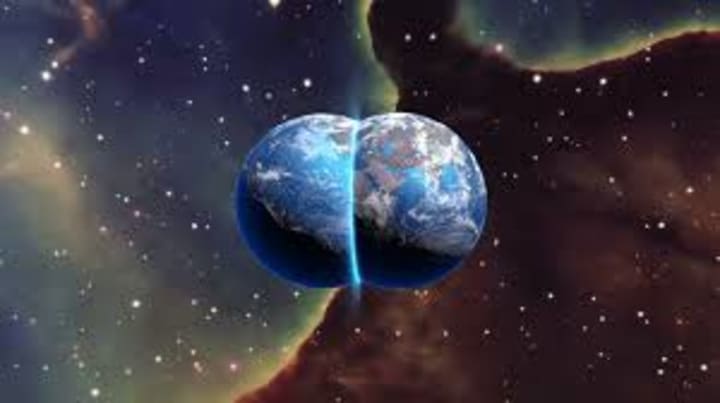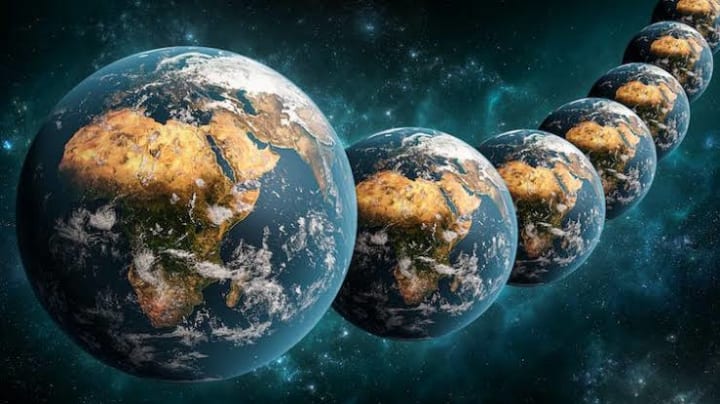
In the vast expanse of the cosmos, numerous mysteries continue to challenge our understanding of the universe. One of the most intriguing and enigmatic concepts in modern physics is the idea of parallel universes, often referred to as the Multiverse. This mind-boggling hypothesis posits the existence of multiple universes beyond our own, each with its unique set of physical laws, constants, and dimensions. In this article, we will delve into the realm of parallel universes, exploring the theoretical foundations, evidential support, and the philosophical implications of this perplexing idea.

Theoretical Foundations:
The concept of parallel universes finds its roots in various theories of cosmology and quantum mechanics. Perhaps the most well-known idea is the "Many-Worlds Interpretation" of quantum mechanics, first proposed by physicist Hugh Everett III in 1957. According to this interpretation, every possible outcome of a quantum event spawns a separate universe, resulting in a branching tree of alternate realities.
Additionally, string theory, a candidate for the elusive "theory of everything," suggests the existence of multiple dimensions beyond the familiar three spatial dimensions and one time dimension. Within these higher dimensions, universes could exist, each with its specific properties, governed by different laws of physics.
Evidential Support:
At present, concrete empirical evidence for the existence of parallel universes remains elusive. Theories surrounding the Multiverse are primarily rooted in mathematics and theoretical physics, making them difficult to test directly. However, some intriguing phenomena and observations lend credence to the idea.
The cosmic microwave background radiation, considered the remnants of the Big Bang, exhibits certain anomalies that have led some researchers to propose the idea of collisions between our universe and others, leaving potential imprints in the cosmic microwave background.
Moreover, some quantum experiments, such as the double-slit experiment, seem to suggest that particles may exist in multiple states simultaneously, supporting the notion of branching universes within the Many-Worlds Interpretation.
Philosophical Implications:
The existence of parallel universes raises profound philosophical questions about the nature of reality, the meaning of existence, and our place in the cosmos. If a Multiverse does indeed exist, it challenges the conventional idea of a singular universe with a unique history and future. It prompts us to question whether the choices we make in life are mere probabilities played out across different realities or if they hold meaning in a broader cosmic context.
Furthermore, the Multiverse hypothesis touches on the anthropic principle, which posits that the conditions of our universe seem finely tuned to support life as we know it. The existence of a vast array of parallel universes with different properties offers an explanation for this fine-tuning, suggesting that life could arise in some universes while being impossible in others.
Conclusion:
The concept of parallel universes remains an enthralling and mysterious topic that continues to captivate the imaginations of scientists, philosophers, and the general public alike. While lacking direct empirical evidence, the theoretical foundations and intriguing phenomena surrounding the Multiverse concept warrant serious consideration and further exploration.
As we journey deeper into the frontiers of cosmology and quantum mechanics, we may one day unlock the secrets of parallel universes, shedding light on our place in the grand tapestry of existence and unraveling the enigma of the Multiverse. Until then, the idea of multiple realities remains one of the most profound and awe-inspiring mysteries that the universe has to offer.
As a summary:

"Parallel Universes: The Multiverse Hypothesis" explores the enigmatic concept of parallel universes, theorizing the existence of diverse realities beyond our own. Rooted in quantum mechanics and string theory, evidence remains elusive but includes cosmic background radiation anomalies. The Multiverse concept raises profound philosophical questions about reality, existence, and life's significance. While mysterious, it continues to captivate scientific and philosophical curiosity.






Comments
There are no comments for this story
Be the first to respond and start the conversation.